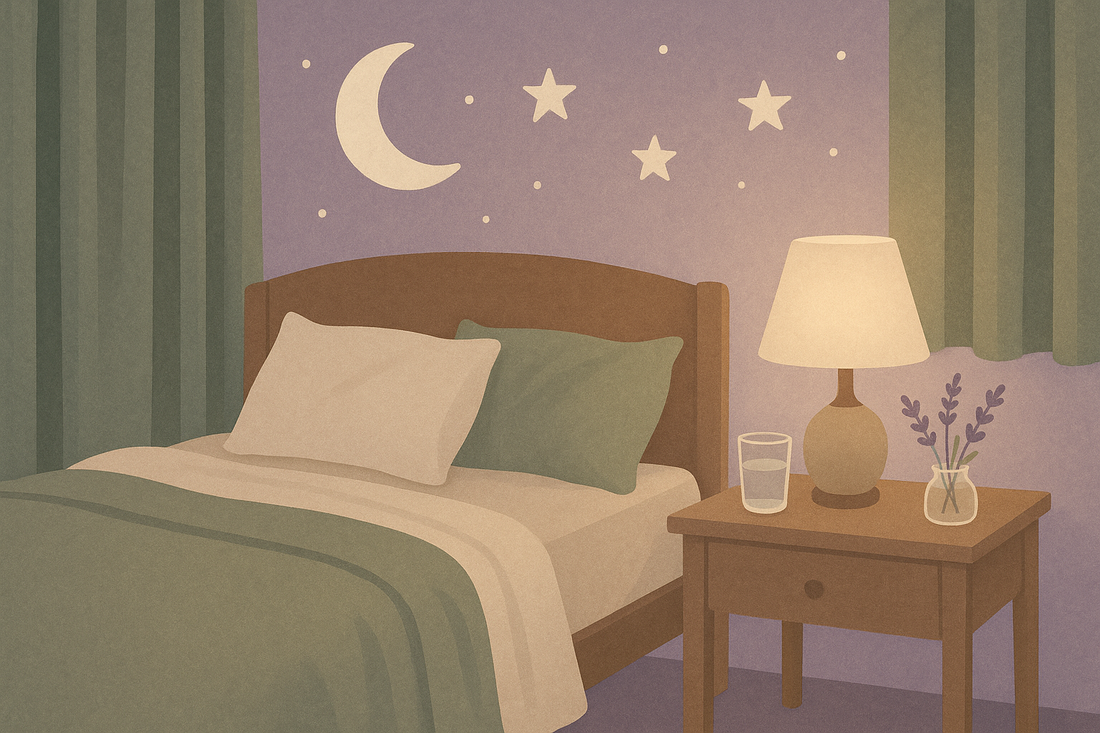Sleep and Dry Eyes: How Rest Affects Eye Health
Poor sleep can trigger dry eyes, fatigue, and irritation. Learn how deep rest, hydration, and eyelid protection can improve your eye health overnight and beyond.

The Connection Between Sleep Quality and Eye Health
Poor sleep doesn’t just make you tired — it can directly impact your eyes. From dryness to fatigue and even blurred vision, the connection between your rest and your eye health runs deeper than most people realize. In this guide, we’ll explore how the quality of your sleep influences your eyes, why nighttime moisture balance matters, and how improving your sleep routine can help reduce dryness and strain. For a more complete understanding of what causes dry eyes overnight and during the day, see The Complete Guide to Dry Eyes.
Quick Navigation
1. How Sleep Affects Eye Function and Hydration
When you sleep, your eyes rely on your eyelids and tear film to stay protected. During deep rest, tear production slows by up to 70%, which means your eyelids are your main defense against dryness. If your lids don’t close fully — or if airflow from fans or CPAP machines reaches your eyes — moisture evaporates, leaving your eyes dehydrated by morning.
Inadequate or disrupted sleep also reduces tear film stability. Research shows that even mild sleep deprivation can alter the composition of tears, lowering their ability to protect the ocular surface. This is why people who frequently sleep poorly often wake with burning or gritty eyes.
2. Recognizing the Signs of Eye Fatigue from Poor Sleep
Eye fatigue and poor sleep quality go hand in hand. Common symptoms include:
- Redness or puffiness around the eyes upon waking
- Sensitivity to light (photophobia)
- Difficulty focusing or blurred vision
- Aching or twitching eyelids
- Watery or excessively dry eyes
These signs suggest that your eyes aren’t recovering properly overnight. The longer the cycle continues, the more inflammation builds — compounding the problem and making eyes more vulnerable to environmental dryness during the day.
3. Sleep Disorders That Cause or Worsen Dry Eyes
Certain sleep disorders can make nighttime dryness far worse. For example:
- Sleep apnea: Air leaks from CPAP masks can blow directly into the eyes, drying them out overnight.
- Nocturnal lagophthalmos: A condition where eyelids don’t close completely, allowing constant evaporation.
- Insomnia and short sleep cycles: Reduced REM sleep limits ocular surface recovery and lubrication.
People with these conditions often find that addressing their sleep disorder not only improves rest but also dramatically reduces chronic eye irritation and fatigue.
4. Habits to Improve Sleep Quality and Eye Comfort
Small nighttime habits can make a big difference for both rest and hydration:
- Maintain a consistent bedtime schedule — irregular sleep disrupts hormone and tear balance.
- Reduce screen exposure before bed to limit blue light–induced melatonin suppression and eye strain.
- Keep your bedroom humidity between 40–60% to prevent tear film evaporation.
- Stay hydrated throughout the day; dehydration worsens tear instability overnight.
- Consider using a warm compress before sleep to stimulate oil glands that stabilize tears.
Together, these steps promote deeper sleep cycles, better tear composition, and healthier eye function over time.
5. Why Eye Protection During Sleep Matters
Even with perfect sleep hygiene, many people still experience morning dryness due to incomplete eyelid closure or airflow exposure. Protecting your eyes overnight ensures the hydration you gain from good sleep isn’t lost.
A gentle eyelid adhesive like EyeOasis Sleeping Tape can help maintain a natural seal through the night. By keeping lids fully closed, it prevents tears from evaporating and allows your eyes to recover — so you wake up refreshed, not irritated.
Shop the Solution
Protect your eyes overnight with EyeOasis Sleeping Tape. Designed for comfort and tested for sensitive skin, it helps prevent moisture loss while supporting better sleep quality and eye health.
Sources
- Tsubota K, et al. *Effects of Sleep Deprivation on the Ocular Surface.* Ophthalmology, 1995.
- Lee W, et al. *Association Between Sleep Quality and Dry Eye Disease.* J Clin Med, 2020.
- American Academy of Ophthalmology. *Understanding Nocturnal Lagophthalmos and Eye Health.*
- Craig JP, et al. *TFOS DEWS II: Tear Film Homeostasis and Eye Surface Integrity.* Ocul Surf, 2017.
